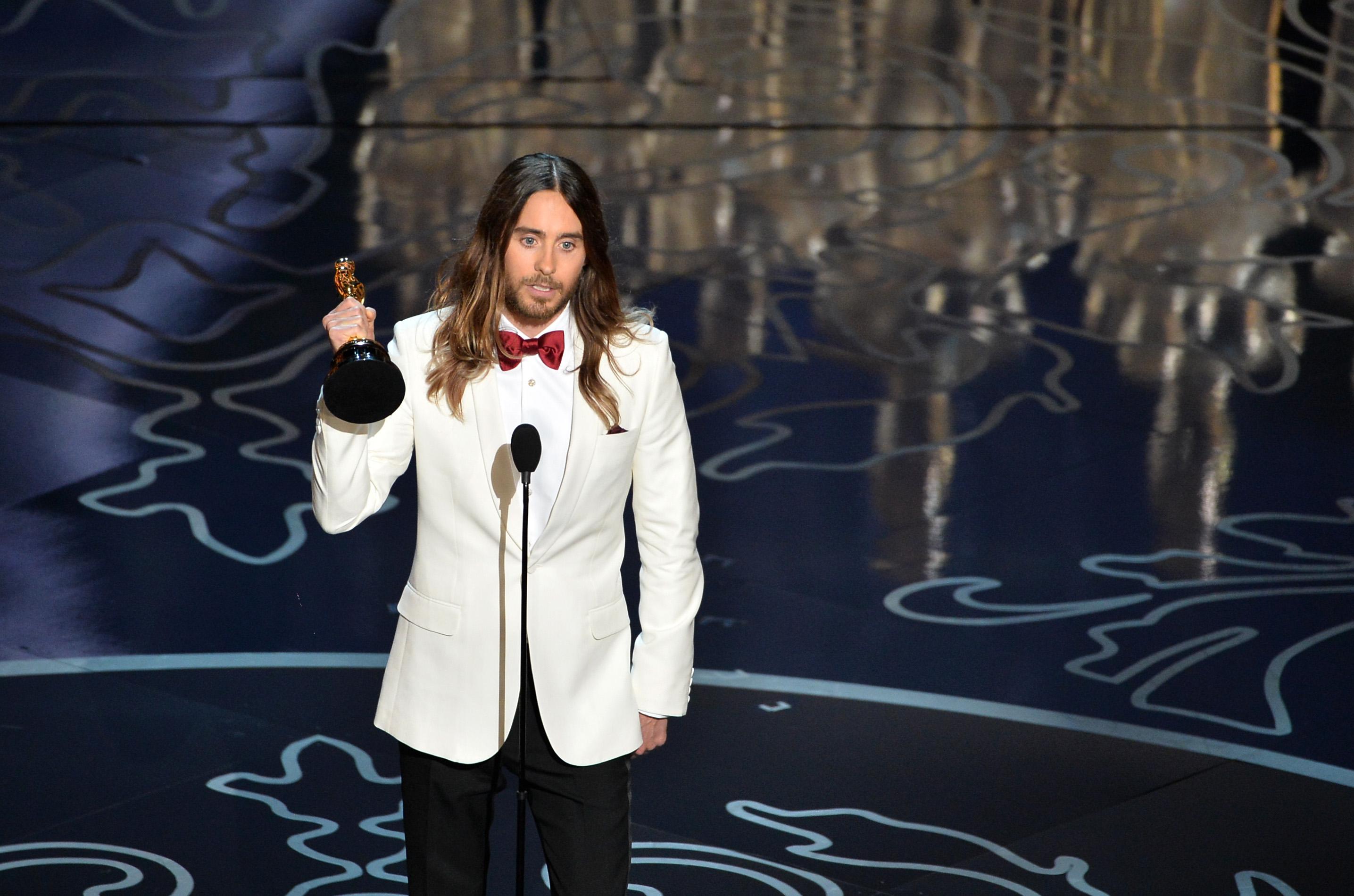Jared Leto won the Best Supporting Actor Oscar tonight for his role as Rayon, a transgender woman, in Dallas Buyers Club—and given his bracing performance in a wonderfully queer movie, the accolade was well-deserved. It was also unsurprising, as Oscar predictors had long had Leto as the winner.
What was less predictable was Leto’s speech. When he took home the Golden Globe for Rayon back in January, I called his remarks “self-centered and juvenile” and joined many critics in finding his jokes about the difficulties of Brazilian waxing in very poor taste, considering the true physical struggles transgender people like his character can endure. I ended that assessment hoping that next time, Leto would have “basic notes prepared that won’t mock the very people of whom you’re supposedly a champion.”
So did he? Well, it didn’t look good at first. Earlier on the red carpet, Leto was thanked for bringing Rayon to the screen, and he responded by saying he felt “really lucky to have been a part of this movie” essentially because it represented a come-back for him. In other words, self-centeredness still promised to be a theme of the night.
The actual acceptance speech, which was preceded by a noticeable cheer for the nomination itself, started off questionably, with Leto offering a rather lengthy and banal tribute to his mother for encouraging him to be creative, etc. Then, with the orchestra no doubt tuning up to play him off, Leto made an awkward (if well-meaning) nod to the ongoing crises in Venezuela and Ukraine before thanking Focus Features and other parts of the film team. Time seemed to be running out to express a little gratitude to the community he was being feted for representing, but then, just before the buzzer, Leto acknowledged the “36 million people who have lost the battle to AIDS” and, most importantly, dedicated his statuette “to those of you out there who have ever felt injustice because of who you are or who you love,” adding “I stand here in front of the world with you and for you.”
It wasn’t much in the context of a lengthy speech, considering that a significant percentage of this win should be attributed to the Academy’s desire to make a social statement. And the relevant lines could have been less vague (the word transgender did not appear). But then, waxing jokes were avoided and the relevant lines seemed heart-felt, so I say we call it a net improvement.
